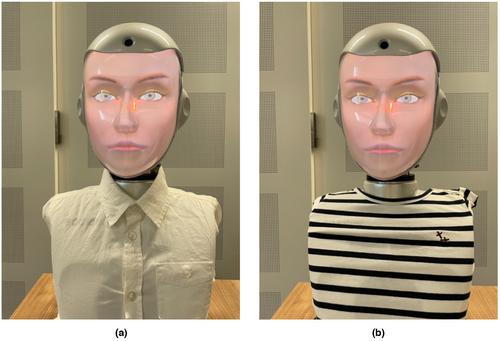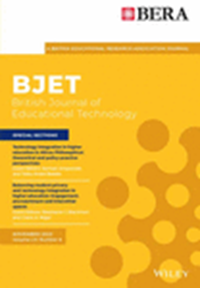The impact of social robots' presence and roles on children's performance in musical instrument practice
Abstract
Research on the educational applications of social robots has shown how they can motivate children and help improve academic learning outcomes. Here, we examine how robots can support skill learning and, more specifically, musical instrument practice. Drawing from social facilitation theory and evaluation apprehension theory we expected that the robot's mere presence would impact children's performance and that this effect would be contingent upon the children expecting the robot to evaluate their performance. We report an experiment with children (N = 31) aged nine to twelve who practiced a familiar and new piece alone, in the presence of an evaluative robot, and in the presence of a non-evaluative robot. We found that children performed better in terms of rhythm, pitch, and general impression in the presence of the non-evaluative robot. These findings offer important insights for designing robot tutors for music learning.
Practitioner notes
What is already known about this topic
- Social robots have been applied in different educational scenarios (e.g., second language, math, and programming) and were proven to be beneficial for children's motivation.
- Musical instrument learning requires practice, perseverance, and social support to become successful.
- Social robots can be used as a provider of social support during musical instrument practice.
- Children tend to perform better on easy or well-rehearsed tasks and worse on complex tasks or new ones with the presence of observers, but only when they believe the observer can evaluate them.
What this paper adds
- Social robots are beneficial for children's performance in musical instrument learning.
- Limited evidence was found to prove that children tend to perform better on old melodies and worse on new melodies in the presence of a social robot. However, the results confirmed that the level of evaluative of the robot matters.
- Children tend to have better performance with the robot that did not provide evaluative comments when practicing a new melody (a difficult task) than alone and with the robot that offered evaluative comments.
- This study confirmed that social robots can provide support to children in practicing music, helping to improve their performance.
Implications for practice and/or policy
- Social facilitation and evaluation apprehension effects need to be taken into consideration during the behaviour design of companion robots in learning scenarios.
- Robots, which were intended to motivate children in learning, should be designed to not provide evaluative comments.


 求助内容:
求助内容: 应助结果提醒方式:
应助结果提醒方式:


